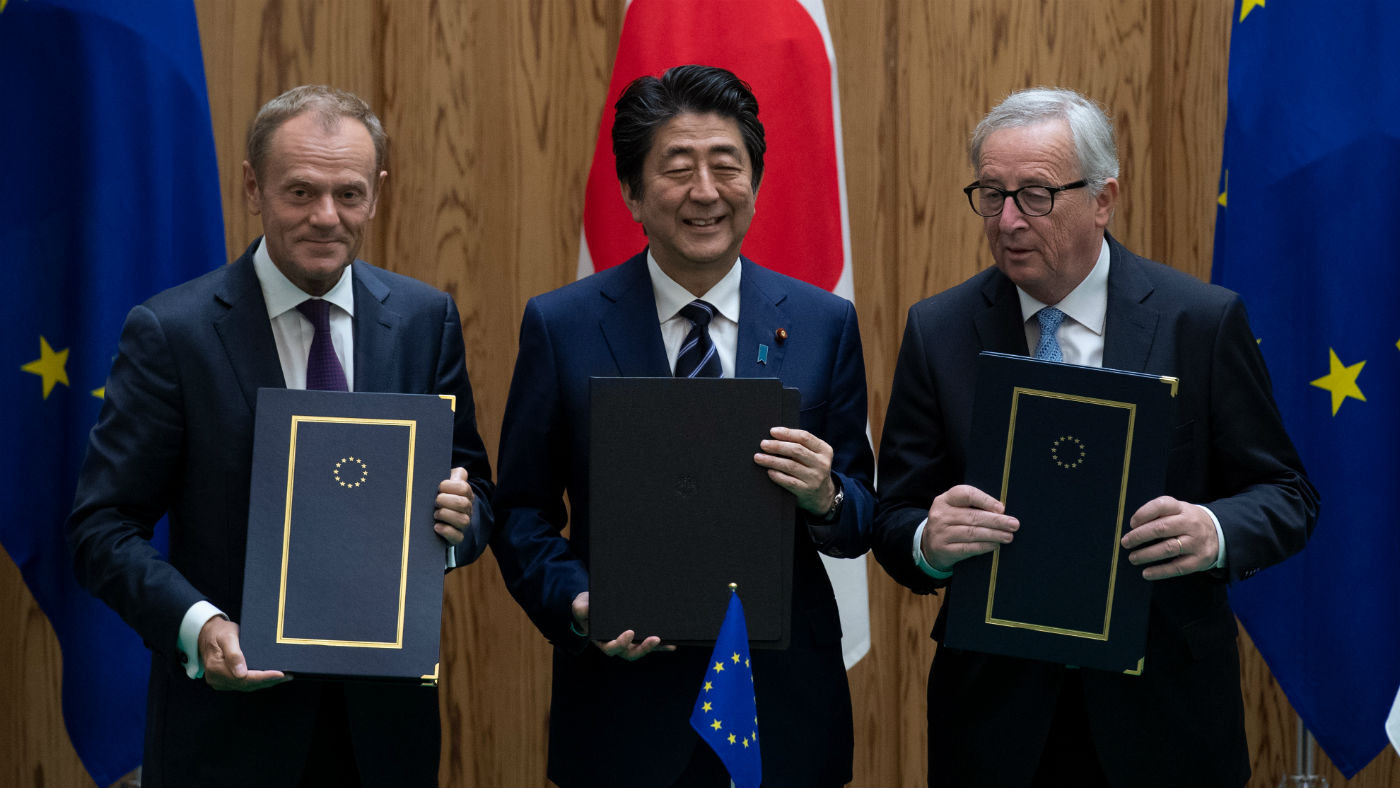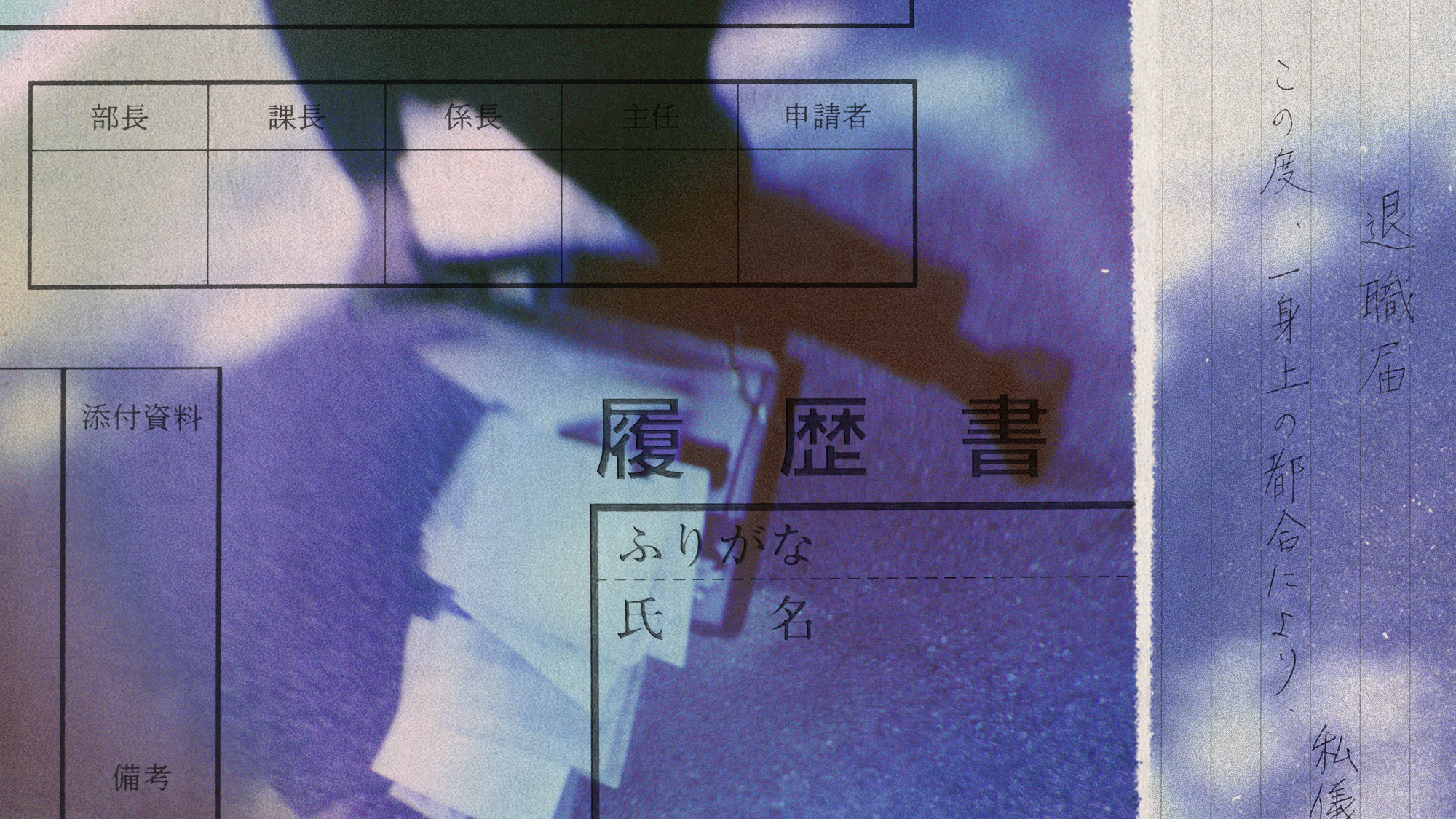EU and Japan sign free trade deal
Both sides hope wide-ranging agreement will act as counterweight to Trump’s protectionist forces

A free daily email with the biggest news stories of the day – and the best features from TheWeek.com
You are now subscribed
Your newsletter sign-up was successful
Japan and the European Union have signed a wide-ranging free trade agreement that both sides hope will act as a counterweight to the protectionist forces unleashed by US President Donald Trump.
Reuters described the trade pact, which creates the world’s largest open economic area that accounts for about a third of global GDP, as “ambitious”, and a “sign of the shifting global ties as Trump distances the United States from long-time allies like the EU, Nato and Canada”.
Once ratified by parliaments on both sides, the deal will eliminate about 99% of tariffs on Japanese goods, including 10% on Japanese cars. It will scrap Japanese duties of 30% or more on EU cheese and 15% on wine, as well as securing access to large public tenders in Japan.
The Week
Escape your echo chamber. Get the facts behind the news, plus analysis from multiple perspectives.

Sign up for The Week's Free Newsletters
From our morning news briefing to a weekly Good News Newsletter, get the best of The Week delivered directly to your inbox.
From our morning news briefing to a weekly Good News Newsletter, get the best of The Week delivered directly to your inbox.
This will be particularly beneficial to Europe’s food sector, which will be able to capitalise on Japanese demand for high-quality products, with EU officials estimating it could boost the bloc’s overall economy by 0.8% over the long term.
Following the signing ceremony, Japanese Prime Minister Shinzo Abe, said: “There are rising concerns about protectionism, but I want Japan and the EU to lead the world by bearing the flag of free trade”.
This sentiment was echoed by European Council President, Donald Tusk, who told reporters the deal sent a “clear message that we stand against protectionism”.
Appearing as a united front, Abe, Tusk and European Commission President Jean-Claude Juncker “sought to establish themselves as the flag-bearers of the free world, in response to Donald Trump’s show of apparent solidarity with Vladimir Putin in Helsinki on Monday”, reports The Guardian.
A free daily email with the biggest news stories of the day – and the best features from TheWeek.com
It comes as part of a wider EU strategy to secure long-term permanent trade deals with Asian markets in a bid to counter the increasingly protectionist policies of the US.
EU accords with Singapore and with Vietnam are at the ratification stage, while deals with Indonesia, Australia and New Zealand are being negotiated.
The EU and China also issued a communiqué on Monday affirming the commitment of both to the multilateral trading system.
It is not clear, as yet, whether the UK will benefit from these deals as it looks to secure its own post-Brexit trading relationships.
Both Japan and the EU have rushed through negotiations in the hope the deal could come into force before the UK leaves the bloc in March next year.
Japan’s ambassador for international economic affairs, Yoichi Suzuki, said earlier this year that if an EU-Japan deal were in force in the UK during the Brexit transition phase, it would buy Japan more time to establish a separate trade deal with Britain.
However, The Independent says “experts have previously suggested the UK would struggle to better the terms of the EU-Japan deal in any negotiations on its own”.
-
 Why are election experts taking Trump’s midterm threats seriously?
Why are election experts taking Trump’s midterm threats seriously?IN THE SPOTLIGHT As the president muses about polling place deployments and a centralized electoral system aimed at one-party control, lawmakers are taking this administration at its word
-
 ‘Restaurateurs have become millionaires’
‘Restaurateurs have become millionaires’Instant Opinion Opinion, comment and editorials of the day
-
 Earth is rapidly approaching a ‘hothouse’ trajectory of warming
Earth is rapidly approaching a ‘hothouse’ trajectory of warmingThe explainer It may become impossible to fix
-
 Currencies: Why Trump wants a weak dollar
Currencies: Why Trump wants a weak dollarFeature The dollar has fallen 12% since Trump took office
-
 TikTok: New owners, same risks
TikTok: New owners, same risksFeature What are Larry Ellison’s plans for TikTok US?
-
 Trump wants a weaker dollar, but economists aren’t so sure
Trump wants a weaker dollar, but economists aren’t so sureTalking Points A weaker dollar can make imports more expensive but also boost gold
-
 Why quitting your job is so difficult in Japan
Why quitting your job is so difficult in JapanUnder the Radar Reluctance to change job and rise of ‘proxy quitters’ is a reaction to Japan’s ‘rigid’ labour market – but there are signs of change
-
 Leadership: A conspicuous silence from CEOs
Leadership: A conspicuous silence from CEOsFeature CEOs were more vocal during Trump’s first term
-
 The end for central bank independence?
The end for central bank independence?The Explainer Trump’s war on the US Federal Reserve comes at a moment of global weakening in central bank authority
-
 Why Saudi Arabia is muscling in on the world of anime
Why Saudi Arabia is muscling in on the world of animeUnder the Radar The anime industry is the latest focus of the kingdom’s ‘soft power’ portfolio
-
 Can Trump make single-family homes affordable by banning big investors?
Can Trump make single-family homes affordable by banning big investors?Talking Points Wall Street takes the blame